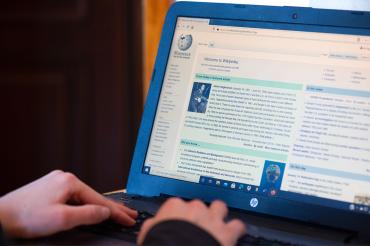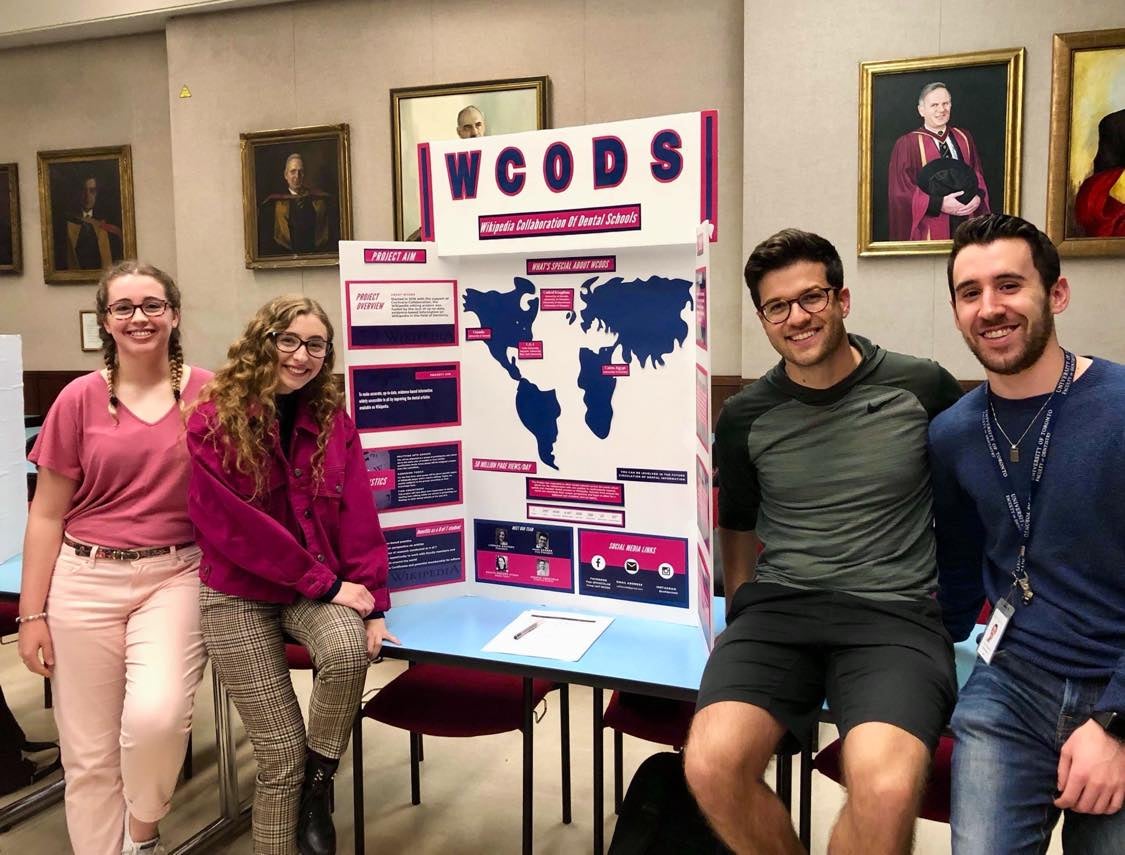In a bid to improve accuracy, U of T students give Wikipedia's dental and oral health content a checkup

Published: May 24, 2022
Many students use Wikipedia as a source of information multiple times a week, if not every day. But what happens when that information lacks accuracy and proper citations?
It’s a problem the Wikipedia Collaboration of Dental Schools (WCODS) aims to address in the dentistry field.
Linnaea Halpert, a University of Toronto student who is graduating in June with her doctor of dental surgery degree, is the president of the Faculty of Dentistry’s WCODS club. The club was started three years ago with the assistance of Associate Professor Hashim Nainar and Helen He, the head of the Faculty of Dentistry’s library.
“Wikipedia is the first point of access for patient and student questions,” says Halpert. “WCODS is a community of dental students and dentists who monitor dental and oral health-related content on Wikipedia and keep the information up to date.”
WCODS was started by Dr. Nour Geres at Dundee University in the U.K. and now has chapters all around the world, including the one at U of T. At the beginning of every year, each chapter is assigned a topic of focus with specific Wikipedia articles to work on to ensure that there is no overlap in editing efforts among different chapters. Since Wikipedia utilizes open collaboration, one of the challenges is that editing work can be undone. Halpert says each chapter therefore monitors the pages after they have been updated to ensure accuracy.
Halpert became interested in WCODS when she was working at Princess Margaret Hospital alongside someone who went to dental school in the U.K.
“I know I have been told that Wikipedia isn’t a credible source and we shouldn’t use it, but I also know it’s a website many of my classmates go to for a last-minute check,” she says. “So, I thought if so many of us are using it anyway, why not try to make it as good as it possibly can be.”
She notes that Wikipedia is also used by patients and other dentists, making it even more important that everyone is accessing the same accurate information.

The WCODS club prior to the pandemic. From left to right: Bronte Murcar-Evans, Linnaea Halpert, Noah Gasner and Joshua Tordjman (photo by Adam Tepperman)
Halpert says WCODS is also an opportunity for students at the Faculty of Dentistry to join a community of students and dentists around the world.
“Joining the WCODS club gives students great networking opportunities, the chance to bridge the gap between dentists and patients, and allows them to gain dentistry knowledge and literature appraisal skills,” she says. “Being a part of WCODS also helps students in their pre-clinical years as a way to improve content online so that when the patient sits in their chair, they can help further bridge that knowledge gap.”
Halpert encourages all students and faculty to get involved in the club.
“We would love to have more faculty members involved so we can further expand the scope of the topics we edit and make more accurate.”



